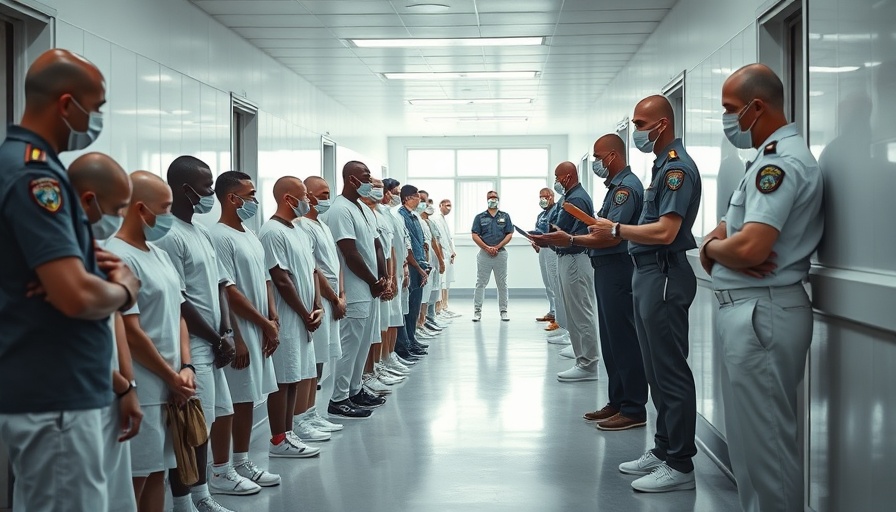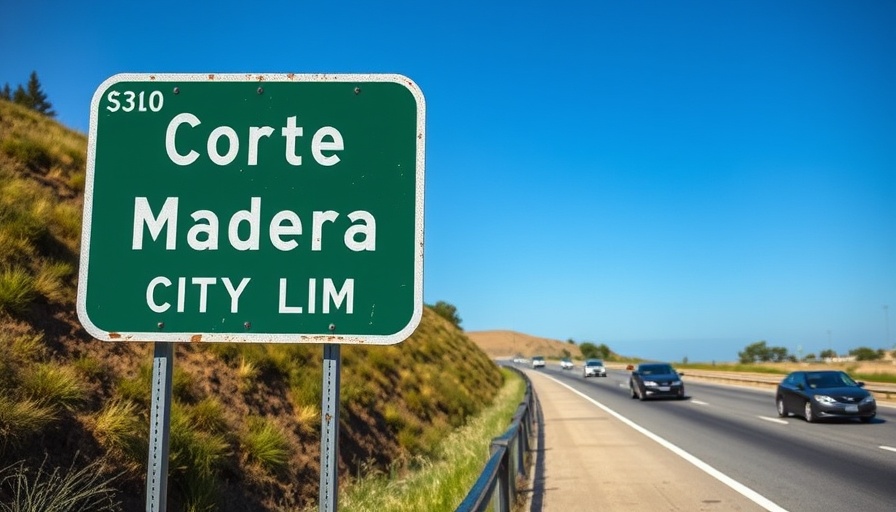
The Controversial Deportation: Understanding the Details
In an unexpected turn of events, El Salvador officials have confirmed to the United Nations that the U.S. government still controls Venezuelan migrants deported to a notorious prison in El Salvador. This revelation contradicts previous statements from both Salvadoran authorities and U.S. officials, igniting discussions surrounding the complexities of immigration policies under the Trump administration.
What is the Terrorism Confinement Center?
The facility, known as the Terrorism Confinement Center (CECOT), has been labeled a mega-prison notorious for its harsh conditions. Recently, more than 100 Venezuelan migrants were sent here despite an order from a U.S. court that attempted to prevent their deportation. Legal representatives for these migrants described the situation as a blatant disregard for judicial rulings, thus positioning the political dynamics at the crossroads of immigration law.
Legal Implications of U.S. Control
The acknowledgment from Salvadoran officials—that they bear no legal responsibility for the migrants—opens a new layer of legal challenges. Lawyers and human rights advocates have stated that the situation reveals how U.S. authorities remain responsible for the well-being of these individuals. “The assertion that their jurisdiction lies solely with El Salvador is both misleading and misleading,” pointed out ACLU lawyer Lee Gelernt.
The Shadows of America’s Deportation Policies
Immigration policies have been a contentious issue in U.S. politics, especially under President Trump’s administration. The controversial decisions to expedite deportations using historical legal frameworks, such as the Alien Enemies Act, have prompted public outcry and legal battles. Critics argue that these policies infringe upon the rights of migrants, stripping them of due process.
Human Rights Concerns Under Scrutiny
Legal advocates have expressed serious concerns regarding the human rights implications of this arrangement. The conditions within CECOT have prompted scrutiny, casting doubt on El Salvador's ability to provide humane treatment to deported individuals. Furthermore, recent cases of wrongful deportations—such as that of Kilmar Abrego Garcia, whose deportation occurred against a judge’s order—raise alarms about the overall integrity of these operations.
Political Fallout and Public Outcry
This situation has led to a backlash against the Trump administration, with critics claiming dishonesty towards both the American public and the court systems. Analysts suggest that the ongoing lawsuits initiated by advocacy groups may force a reevaluation of immigration policies that affect not just Venezuelan migrants but the broader debate around U.S. immigration reforms.
A Broader Perspective on Immigration
As discussions around these deportations continue, it is essential for communities to engage with the complexities of the immigration policies at play. Understanding how U.S. decisions impact individuals a world away is crucial for fostering informed debates about human rights and legal frameworks in the immigration system.
The Future of Immigration Policies and Rights
With the recent admission by Salvadoran officials, it becomes increasingly clear that future immigration policies will need to address these contradictions. Transparency, accountability, and a commitment to human rights must become integral parts of U.S. immigration discussions. The unfolding legal battles are not just about individuals; they represent larger issues of justice, freedom, and the integrity of the American legal system.
As citizens, staying informed about such pivotal issues is crucial. Engaging in discussions and advocating for humane policies can help shape the future regarding immigration and human rights.
 Add Row
Add Row  Add
Add 




 Add Row
Add Row  Add
Add 

Write A Comment